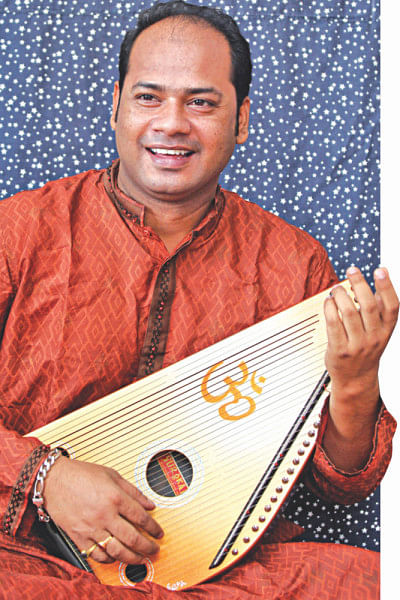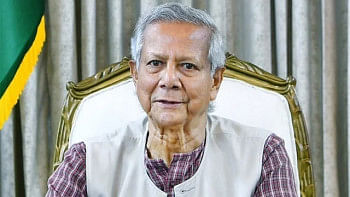Music as a divine calling

Classical vocalist and ghazal singer Aloke Kumar Sen has enthralled audiences in Bangladesh and beyond with his admirable vocals, but the busy artiste is now taking a short respite for Puja. Once the festivals are over, the singer has plans to release a new solo album containing raga-based original songs in Kolkata. In a recent conversation with The Daily Star, the artiste speaks about this latest venture, Puja plans, and more.
“I have used mostly acoustic instruments in the album. Five of the songs have been composed by me, while the others have been composed by Kokonaad Bose. I have written the lyrics for three songs in the album, using the classical literary style found in Bangla and Urdu poetry.”
“I am attending Puja in Kolkata after many years. Kolkata is the heart of Durga Puja festivities, and you can truly feel the Goddess' arrival in the air. During this time, Pannalal Bhattacharya's Shyama Sangeet is considered the most fitting for the festival. After that we have Hemanta Mukherjee, Manna Dey, Kishore Kumar, Manabendra Mukhopadhyay, Satinath Mukhopadhyay, Pintu Bhattacharya, Arati Mukkhopadhyay, Haimanti Shulka, Sandhya Mukhopadhyay, Protima Bandyopadhyay, Asha Bhosle, Lata Mangeshkar who used to release new songs marking the occasion.”
“Although these songs were sung for Puja, they were also art done for art's sake. Sadly, we now belong to an age where musicians do not follow their calling and are swayed by stardom. We believe that 'Ishwar' (The Almighty) sends down music through chosen people, and therefore it becomes our duty to fulfill that divine call. Art is also a social responsibility, and we must work towards not only preserving and practising the traditional arts, but to also guide people in the right direction. “
“When I was younger, I remember preparations for making Pratima took place a month in advance. I used to skip school to watch and would even step in to help. I would always excitedly anticipate when it would finally be the time to start painting Her. Painting would go on even on the sixth day of Puja, when we would raise her on the ghat. I was good at playing the dhaak and performing the arati and dance on the Bijaya Dashami day, and this responsibility was often given to me. And on the final day, Bisharjan, I would get down in the waters carrying the Goddess, and that duty also laid down on us a heavy sense of leadership. I don't think I will ever get to relive that again.”

 For all latest news, follow The Daily Star's Google News channel.
For all latest news, follow The Daily Star's Google News channel. 



Comments